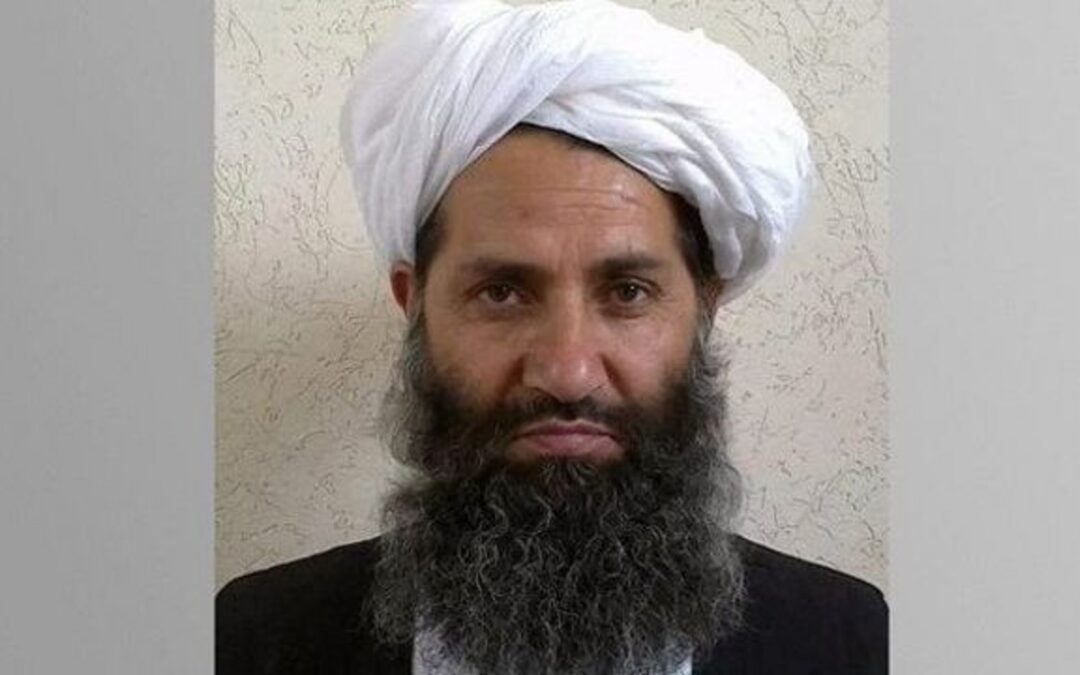Amu has conducted an in-depth analysis of nine speeches delivered by the Taliban’s leader, Hibatullah Akhundzada, since the group’s return to power. All of these speeches were released in audio format.
According to the Taliban, these speeches were primarily delivered during Eid prayers in Kandahar and once at a gathering of religious scholars in Kabul.
Amu’s analysis reveals that Akhundzada invoked the name of “Allah” 464 times throughout these speeches, using religious rhetoric to justify his decrees as being aligned with divine will.
Akhundzada issued commands to the people of Afghanistan 447 times, framing these orders as consistent with his interpretation of Sharia law.
The word “I” appeared 162 times, a frequency that critics say reflects his self-centered approach.
Despite the public nature of these addresses, Akhundzada mentioned women only three times, with a single reference to widows. In contrast, he repeatedly addressed his audience as “Muslim brothers,” entirely omitting any reference to “Muslim sisters.”
The Taliban leader’s speeches are marked by the frequent use of imperative language; the verb “to do” appears in almost every sentence, signaling directives for the people to act in accordance with the Taliban’s vision of Sharia. This verb alone was used 447 times.
Akhundzada also emphasized the “Islamic system,” mentioning it 153 times and insisting that the Taliban’s rule is fundamentally Sharia-based.
In a striking omission, Akhundzada never referred to the people of Afghanistan as “citizens” or “residents,” instead using the term “people” 71 times. While he referred to “Muslim brothers” 65 times, he never addressed women, further highlighting the male-centric focus of his speeches.
Akhundzada also repeatedly mentioned his own followers, referring to them as “Mujahideen” 68 times, suggesting that their importance rivals that of the general population in his eyes.
The Taliban leader called for the implementation of Qisas (retribution) 22 times, referred to himself as “Amir” 10 times, and once likened himself to Umar ibn al-Khattab, a notable figure in early Islamic history.
When discussing foreign nations, Akhundzada used the term “infidels” 65 times. He mentioned the United States six times and Washington once, with Israel and Qatar being the only other countries he referred to. Notably, despite the Taliban’s relationships with China, Russia, and other countries, Akhundzada did not mention them at all.
In terms of gender, Akhundzada mentioned women only three times, widows once, and made single references to “sister,” “daughter,” and “mother.” Afghan women have condemned these speeches as emblematic of the Taliban’s systematic discrimination against women.
Akhundzada made no mention of freedom of speech and referenced the media only seven times, claiming that other countries use Afghan media as a tool. He used the word “freedom” 10 times, but only to assert that Afghanistan under Taliban rule is “free” and that its citizens enjoy freedom.
In a rare departure from his usual rhetoric, Akhundzada asked for public advice once and mentioned the word “love” only once, advising compassion towards orphans. He referenced “dialogue” four times, not in the context of Afghanistan’s future, but solely concerning the Taliban’s negotiations with the United States in Doha. The word “peace” also appeared just four times in his speeches.





